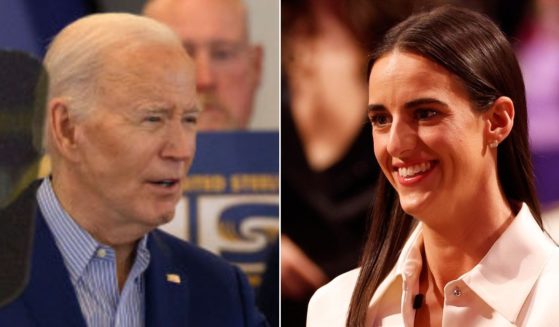Fed-Up TX Leaders Take Stand, Tell Feds They Can't Control Sovereign State
When Democrats took control of the House of Representatives, it became clear that the most they could do was obstruct.
They couldn’t really pass any bills that Republicans would look at seriously, at least given the fact they weren’t willing to work with GOP members of Congress. They weren’t going to be able to set the legislative agenda. So, what were they going to do?
Investigate, investigate, investigate! And while most of these investigations involve members of or actions taken by the Trump administration, they’re also interfering in the matters of individual states, specifically Texas.
According to The Washington Times, both the House Committee on Oversight and Reform and the Subcommittee on Civil Rights and Civil Liberties have decided they want to have a look into Texas’ efforts to combat voter fraud, among other things.
Under Attorney General Ken Paxton, the Lone Star State has been arguably the most aggressive in the union in terms of investigating and fighting voter fraud.
Back in January, the state announced it had found 95,000 potential noncitizens who had registered to vote between 1996 and the present, at least 58,000 of whom had cast a vote in Texas elections.
VOTER FRAUD ALERT: The @TXsecofstate discovered approx 95,000 individuals identified by DPS as non-U.S. citizens have a matching voter registration record in TX, approx 58,000 of whom have voted in TX elections. Any illegal vote deprives Americans of their voice.
— Ken Paxton (@KenPaxtonTX) January 25, 2019
However, the aforementioned committees have taken an interest in this, mostly because Democrats profess to believe voter fraud doesn’t exist and is instead a pretext to oppress minority voters — as if somehow minorities were less able to obtain voter ID or follow voter registration laws.
According to a news release from Paxton’s office, both committees wanted “privileged and confidential information related to ongoing voter fraud investigations.”
And Texas said no.
“Congress lacks authority to force a sovereign state to produce privileged and confidential documents, particularly those relating to active law enforcement efforts and litigation,” a letter from First Assistant Attorney General Jeff Mateer to the committees said.
“Granting Congress the power to exercise ‘oversight’ over the constitutional officers of a state engaged in the lawful exercise of that state’s core authority would undermine the fabric of our system of dual sovereignty,” the letter continued. “In this case, that risk would be made particularly acute by the committee’s attempt to force the constitutionally-designated attorney for the State of Texas to divulge privileged and confidential communications with a client concerning the client’s enforcement of Texas law.”
“Texas does not draw its authority from the United States or the United States Constitution, but from its status as a dual sovereign within the union,” Mateer wrote. “The Constitution grants some powers to the national government, but reserves to the individual states ‘a residual and inviolable sovereignty.'”
“The House of Representatives’ own rules expressly require their requests and investigations to be ‘related to, and in furtherance of, a legitimate task of Congress,'” Paxton’s office noted in the news release, citing Mateer’s letter.
“There is no congressional power that involves a guarantee of voting rights to noncitizens under Texas law.”
Ken Cuccinelli, a Republican who also served as Virginia’s attorney general, said he would give Texas the edge in this battle.
“Congress doesn’t get to do oversight over states — period. Nor can they compel action by state officers,” he told The Washington Times. “If I were a betting man, I’d take Texas and give two touchdowns on this one.”
The two issues at stake, according to Cuccinelli, are the sovereignty of individual states as guaranteed under the Constitution and the supremacy clause, which gives the government some advantage in terms of power over the states.
There is legal precedent for Congress investigating individual states, The Times pointed out, most notably the state of Michigan during the Flint water crisis.
However, the Ninth and 10th Amendments are clear. “The enumeration in the Constitution, of certain rights, shall not be construed to deny or disparage others retained by the people,” the Ninth Amendment states.
The 10th states: “The powers not delegated to the United States by the Constitution, nor prohibited by it to the States, are reserved to the States respectively, or to the people.”
This isn’t the province of Congress. A state has every right, under the Constitution, to conduct an investigation of voter fraud without the interference of Democrats, especially when they’re interfering for the sake of interference.
We’ll certainly see where this goes — there haven’t been any subpoenas yet, merely requests for information, and neither of the committees commented on the letter.
However, if this Congress decides to go further, one hopes Paxton gives the Democrats a lesson in why you don’t mess with Texas.
Truth and Accuracy
We are committed to truth and accuracy in all of our journalism. Read our editorial standards.












